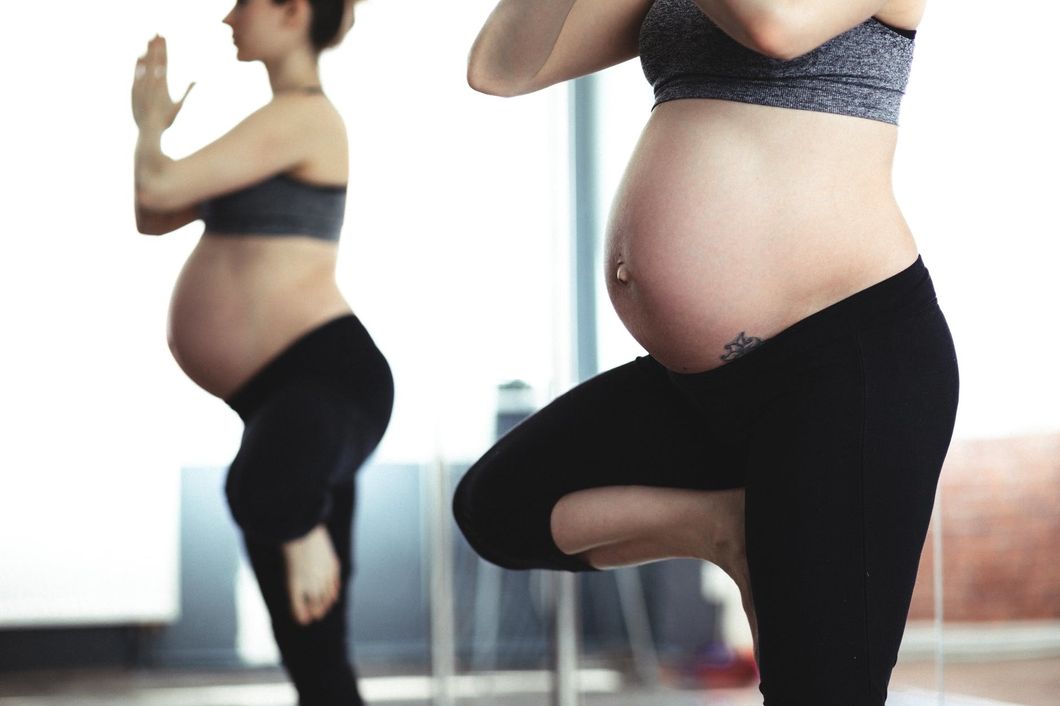I am at this phase in my life where I am simultaneously improving my fitness and fashion game, and therefore my Instagram feed is sprinkled with fitness and fashion inspiration. Recently, one of the bloggers I follow received nasty backlash for continuing to exercise during her pregnancy and promoting it on Instagram. There are people out there in this vast world who feel so strongly compelled to tear down these young women choosing to exercise during their pregnancies with the claim that they are harming the baby or that they must have low self-esteem to continually try to get as thin as possible even with a baby in their belly.
Because I am a firm believer that varying degrees of exercise and physical activity is beneficial for most people on this planet, this issue intrigued me. It's obvious that if you have a broken ankle you should not go and run a mile, or if you just got your appendix removed you most definitely should not go to the gym the next day and bust out your core strengthening exercises. Pregnancy, on the other hand, is a special circumstance since exercise affects you and another tiny human inside your belly, so I honestly had no idea what, if any, type of exercises would be healthy for the mom and the baby.
It frustrates me to hear stories of women sitting behind their iPhone screen tearing down other women solely based on their opinion and lack of facts. That said, I myself did not have all the facts about exercising during pregnancy, so I decided to educate myself on this issue. After my research from Mayo Clinic and other fitness websites, there were five key factors to exercising when pregnant and I'm going to lay them all out plain and simple.
1. Exercise during pregnancy is beneficial and even encouraged for most women.
2. It's imperative to consult your doctor about your fitness plan.
3. You should not work out as intensely as before.
4. There are exercises to be avoided such as contact sports or those with a risk of falling.
5. Listen to your body because everyone is different, especially during pregnancy.
Basically, there are many benefits to exercising that counteract all the negative side effects of pregnancy that every pregnant woman is warned about by her mom, grandma, neighbor, and fourth cousin twice removed. Exercising has been proven to reduce backaches, constipation, bloating, swelling, and excess weight gain while boosting your energy levels and improving your sleep. Even more, it will strengthen your heart and blood vessels which are key to nurturing the growing baby.
Consulting your doctor before you start your exercise routine and keeping him or her updated during is imperative to making sure that your body is reacting normally and that you are in fact staying healthy for yourself and the baby.
The bottom line I learned from my research is that exercising while pregnant is a generally intuitive concept since you want to make sure that you aren't experiencing pain, weakness, shortness of breath, or dizziness. You also don't want to participate in activities that could clearly cause harm such as kickboxing or diving into the pool.
This issue has grown immensely within these past years due to an evolving fitness culture. If a pregnant woman chooses to not exercise during her pregnancy, does that mean she is unhealthy? No. But, society needs to recognize that through an evolving exercise culture and a growth in research, norms are changing too.
While it is terrible to vocally tear down women for their decisions, it is even worse to do so with a lack of facts and basic research. Exercise is a viable option for pregnant women but varies from person to person, and we need to consult to experts who are knowledgeable on this topic instead of falsely accusing women of having self-esteem issues and negligence for their child.

















